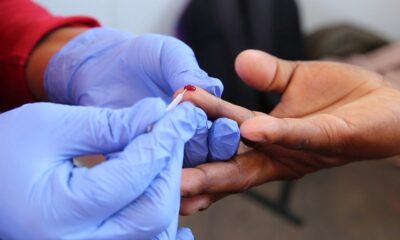Am I Diabetic?
Understanding Sugar in Urine
Sugar in urine, also known as glycosuria, often indicates high blood sugar levels, typically above 180 mg/dL. This can be a sign of diabetes mellitus. However, there are various factors that can cause sugar to appear in urine without indicating diabetes.
Causes of Sugar in Urine
- Renal Threshold Variations: Individual variations in renal threshold can cause sugar to appear in urine at lower blood sugar levels, especially in children and pregnant women.
- Dietary Influences: Consuming a meal high in sugar can temporarily elevate blood sugar levels, leading to glycosuria. This is known as alimentary lag.
- Prediabetes: Individuals with fasting blood sugar levels above 100 mg/dL may experience glycosuria without a diabetes diagnosis. Lifestyle changes can help delay diabetes onset.
Other Conditions Leading to Glycosuria
- Inherited Kidney Conditions: Certain genetic conditions can cause the kidneys to excrete sugar into the urine.
- Medical Conditions: Conditions like nephrotic syndrome or a history of kidney transplant can also result in glycosuria.
Diagnosis and Tests
While urine tests for sugar can indicate high blood sugar levels, they are not definitive for diagnosing diabetes. Blood tests, such as fasting blood sugar and HbA1c, are more reliable.
New Medications
Some modern diabetes medications, such as gliflozins, increase sugar excretion through urine, which can complicate monitoring blood sugar control.
Key Points
- Renal Threshold: The blood sugar level at which kidneys start excreting sugar varies among individuals.
- Temporary Glycosuria: High-sugar meals can temporarily cause sugar in urine.
- Prediabetes: High fasting blood sugar levels can indicate prediabetes and necessitate lifestyle changes.
- Alternative Causes: Genetic kidney conditions and certain medical conditions can lead to glycosuria.
- Blood Tests: More accurate than urine tests for diagnosing diabetes.
- Medication Effects: New diabetes medications can affect urine sugar levels.
In conclusion , Sugar in urine can be a sign of high blood sugar or diabetes, but various factors can contribute to this condition. Understanding these factors and undergoing appropriate blood tests are crucial for accurate diagnosis and management. Always consult with a healthcare professional for proper evaluation and advice.
By following these guidelines and understanding the complexities of glycosuria, individuals can better manage their health and prevent potential complications associated with diabetes.



























